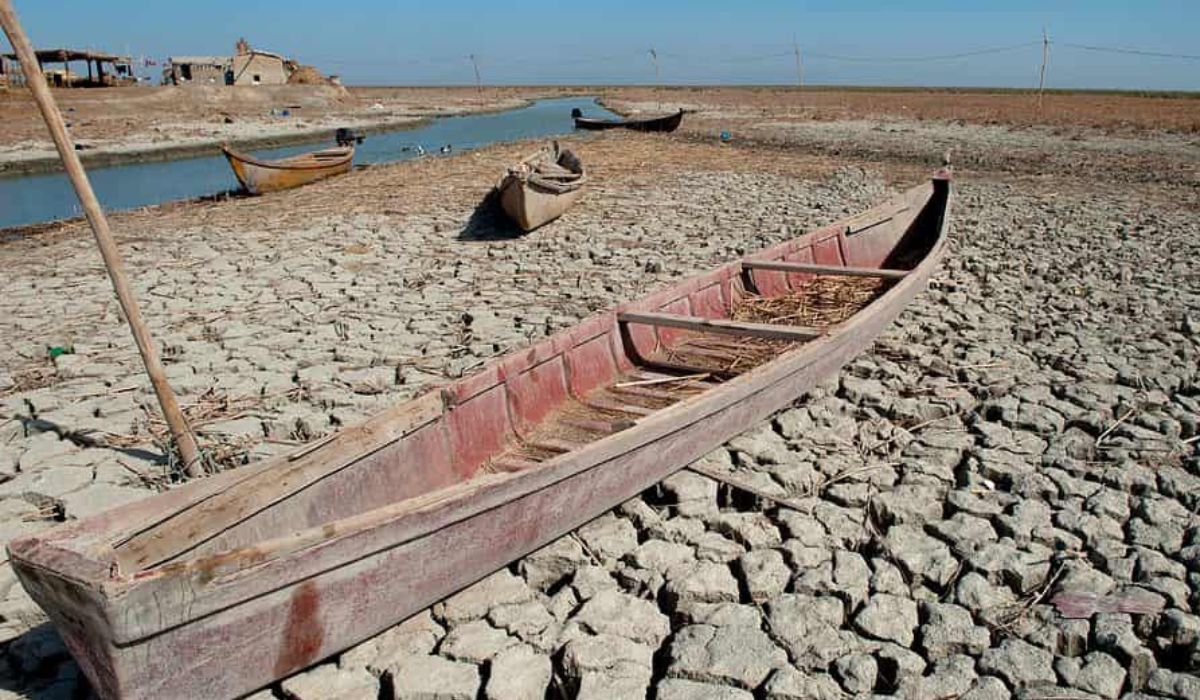For many generations, the Euphrates River, often known as the “Mother of Prosperity,” has served as a lifeline for the birthplace of civilization. Through agriculture, commerce, and culture, its waters have sustained many civilizations.
Importance of the Euphrates River
Historical Significance
The Euphrates has played an important role in the development of civilizations such as the Sumerians, Babylonians, and Assyrians since ancient Mesopotamia. It was crucial to their economic and cultural development.
Economic Importance
The Euphrates is still extremely important to the economies of the areas it flows through since it provides water for agriculture, transportation, and industrial use.
Environmental Role
The river is a natural gem since it supports a wide variety of ecosystems and serves as a home to numerous plant and animal species.
Factors Contributing to the Drying Up
Climate Change Effects
Reduced snowfall in the mountains, the primary source of the Euphrates, is a result of global climate change’s altered precipitation patterns and rising temperatures.
Human Activities
The river’s flow and habitat are severely impacted by the construction of dams and reservoirs along the river for irrigation, hydroelectric generation, and other purposes.
Over-extraction
The overexploitation of the river’s water supply by agriculture, industry, and families is a major contributor to its depletion.
Impact on the Region
The effects of the Euphrates River drying up are far-reaching. Communities around the river will feel the effects, as will farmers who will have less water to use in their fields.
The diminishing water supply is a geopolitical flashpoint because it raises tensions between the countries that share the river.
Efforts to Address the Issue
Environmental Conservation Initiatives
Many groups and governments are working to preserve the Euphrates and encourage responsible water consumption by implementing conservation initiatives.
International Cooperation
Sharing the river is a shared responsibility between the countries. To achieve fair sharing and competent administration of the Euphrates’ waters, conversation and agreements are required.
Sustainable Water Management Strategies
Modernizing irrigation systems and implementing other cutting-edge water management practices can greatly cut down on water waste, helping to ensure the river’s continued viability.
Future Outlook
Despite the difficulties, the Euphrates River is nevertheless a source of inspiration. This important river may be restored and preserved for future generations through eco-friendly methods, international cooperation, and joint efforts.
Conclusion
In conclusion, the diminishing flow of the Euphrates River is a serious problem that needs urgent attention and concerted effort. Preservation of this historic river is vital to the continued prosperity of the areas it serves.
Frequently Asked Questions (FAQs)
Can the drying of the Euphrates River be reversed?
The Euphrates River can be revived with concentrated efforts and sustainable methods.
What are the primary causes of the Euphrates River drying up?
Major causes include climate change, dam development, and water overexploitation.
When the Euphrates dries up, what effects does that have on farming?
As a result, local residents feel the effects of lower crop yields and agricultural output due to lower water availability.
Does the problem of the Euphrates have international agreements in place?
The international community is working on ways to work together, but a complete agreement is necessary.
How can regular people protect the Euphrates?
People can help with water conservation by spreading information and advocating for more efficient water use.











